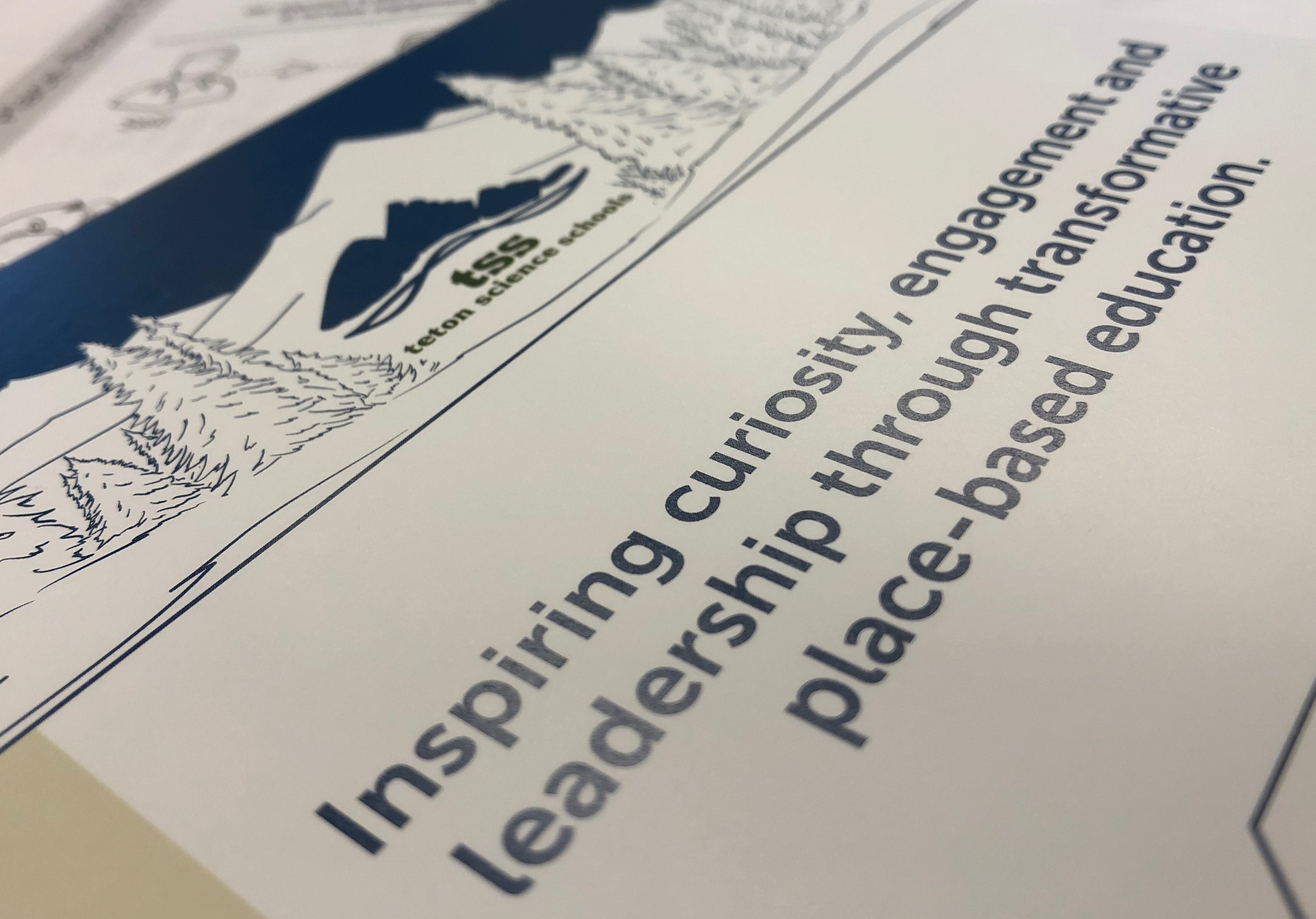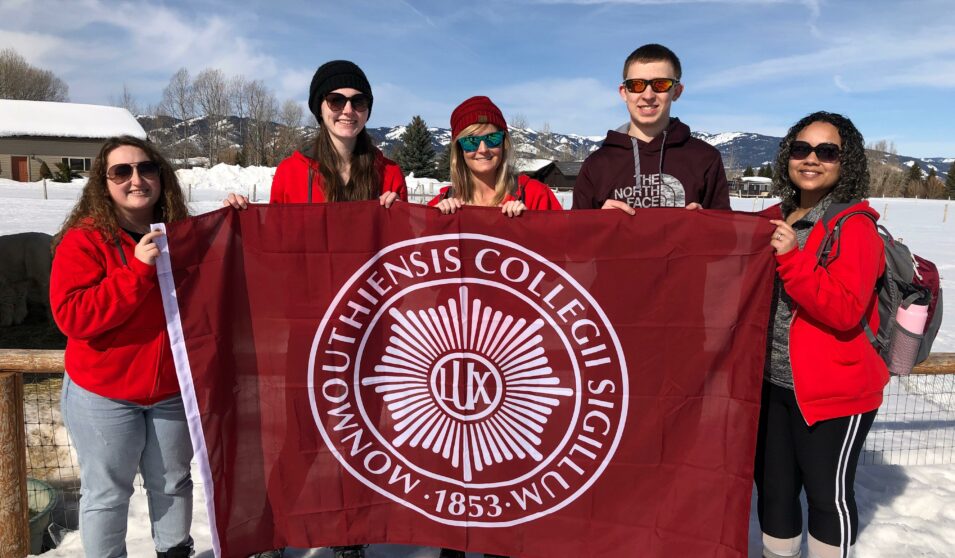Late last March the TARTANS, Monmouth College Ed. Studies Faculty members, and teachers from Central Intermediate School in Monmouth, IL, visited Teton Science Schools for a Place-Based Education Program. During the visit, the Monmouth group explored the TSS approach to Place-Based Education and Project-Based Learning at Journeys School (Jackson and Kelly Campuses in Wyoming) and Teton Valley Community School (Victor Campus in Idaho).
By Amjad Karkout, RSC Community Engagement Fellow
The case for the Trip:
Over the past two years the Monmouth College Department of Educational Studies has developed several initiatives to support education in rural areas. One such initiative is the TARTANS - Teachers Allied with Rural Towns and Neighborhood Schools, a rural teacher corps that aims to prepare future teachers who are visionaries and committed to rural communities. In addition to the TARTANS program, Ed. Studies Faculty members initiated a partnership with Central Intermediate School in Monmouth, IL, that has resulted in many important discussions and developments concerning education in Monmouth area. In addition, Monmouth College partners with the Galesburg Community Foundation to anchor our Western Illinois Hub.
A critical part of working on these initiatives is introducing and implementing place-based education. As such, Craig Vivian, Ed. Studies Professor and Department Chair at Monmouth College, proposed the idea of taking a group of professors, TARTANS, and local teachers for a Place-Based Education Program at TSS. The idea received a strong welcome and support from the College, the School, and Mr. Ed Fletcher, Monmouth-Roseville Superintendent. The trip was made possible with support from the Galesburg Community Foundation and Joanne Moy ’70 and Michael Robinson.

TSS, established in in 1967, is a national leader in implementing place-based education. Located on four campuses in Jackson Hole, Wyoming and Teton Valley, Idaho, the TSS mission is to inspire curiosity, engagement and leadership through transformative place-based education. TSS also serves as the anchor for the Rural Schools Collaborative's Northern Rockies Hub.
Place-based education is an educational approach that connects the classroom to the ecology, economy, and culture of a place. It allows students to gain educational development through the engagement and utilization of community assets, which in turn impacts the development of the community.
Place-based education program and visit:
The goals for the trip to Jackson Hole were as follows:
- participants personally connect to place-based education
- learn TSS Framework and the 6 principles of place-based education
- observe place-based programming in action at Journeys School and Teton Valley Community School
- develop an intentional culture with group and practice community leadership in place, and
- plan for implementation of place-based learning in Monmouth.
On the first day of the visit the Monmouth group attended a workshop to explore place-based education principles and the place network learning model at Journeys School. Afterwards, the group was guided on tour to explore the campus and visit classes for close observations of place-based education and project-based learning. After the observations, TSS facilitated a session to debrief observations and discussion of the day. Finally, the Monmouth group was introduced to the Greater Yellowstone Ecosystem through a workshop that addressed the history, ecology, economy, culture, and political regulations in the area, with connections to rural education in the implementation of place-based education.
Day two saw the group head to Teton Valley Community School in Idaho for a close exploration of project-based learning. Project-based learning is an interdisciplinary educational approach that allows students to learn a variety of subjects through a themed project. One such example is a desert-themed project; students decided that they wanted to learn about the desert. Thus, teachers developed an educational program in which students learn about the geography of the desert, what animals and plants can survive in the desert (biology), what deserts there are in the world, the economy and culture of living in a desert, etc. After a tour of the school and a close observation of the classes, the group had lunch with two of the teachers to grasp a better understanding of how these themed projects are implemented. Also, the group attended a debrief session that focused on projects and interdisciplinary learning. Later that day, the group went on an exploration mission to observe the town of Jackson and connect that to the place triangle of ecology, economy, and culture.
On the last day the group headed to Kelly campus in Wyoming for planning place-based and project-based educational activities that could be implemented in Monmouth. This visit was remarkable in that it was as entertaining as it was educational. After the planning session, TSS hosts guided the Monmouth group on a snowshoe tour at Kelly campus, showing them the landscapes and teaching them about the wildlife. Finally, the group went on a sleigh ride for a closer observation of the Elks.
Concluding Remarks:
The Monmouth visit to TSS was described by one student as "transformational." The trip allowed for a greater understanding of how to embrace place-based education and its connection to community assets, concluding that every place is a special place for its ability to provide in-depth educational development. Throughout the visit, the group of professors, TARTANS, and teachers were able to draw connections to their community in Monmouth and its western Illinois region.
The visit also resulted in discussions for greater collaboration. One of our initiatives at the Rural Schools Collaborative is support TSS with the development of the Place Network Schools (PNS). PNS is a collaborative network of mostly rural K-12 schools that connect learning and communities to increase student engagement, academic outcomes, and community impact. The goal of the partnership between Teton Science Schools and the Rural Schools Collaborative is to use the latter’s regional Hub network as an infrastructure to support the build out of the PNS. This visit resulted in starting a discussion between TSS and the school district at Monmouth-Roseville on a potential partnership with Central Intermediate School as part of the PNS.
TARTANS program aims to prepare future rural teachers and help them establish themselves as leaders in their communities. The goals of the program are to prepare teachers who have a strong sense of “place”, mission, and rural identity – who know rural issues, challenges, and advantages – who are savvy communicators – who value collaboration within school, across community, and between diverse rural regions – and who are perceived as community leaders and catalysts for change.
We invite you to meet the TARTANS and read more about the program as well as other rural teacher corps efforts.




